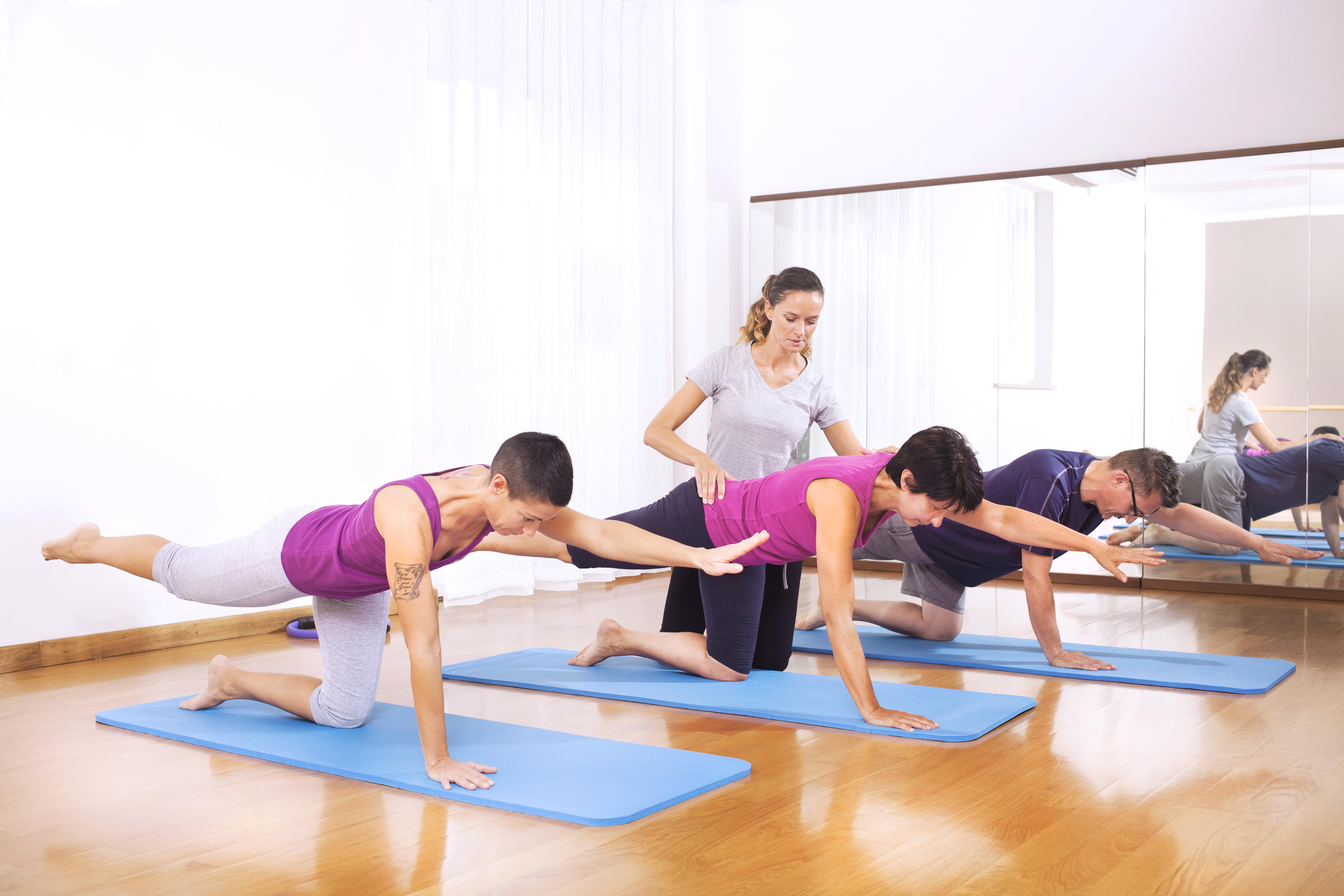We're very pleased to be introducing a range of Clinical Pilates courses to our CPD programme this autumn. Sandie Ennis, course leader tells us a little about some of the benefits we can bring to our patients as pilates-trained practitioners.
"As health professionals, we all have patients that would benefit from increasing their physical activity, as well as those present in clinic too often with common injuries resulting from too-much-too-soon of the wrong exercise for their bodies.
The Pilates method promotes awareness of spine and joint alignment and strengthens the deep and global muscles that support the torso, which are essential for people living with non-specific low back pain. However, patients with pain originating from excessive micro-shearing and degeneration of intervertebral discs and joints are particularly likely to benefit from a Clinical Pilates exercise program.
Traditional "classical" Pilates, which has its origins in ballet and performance, can be difficult and demanding especially to people who are injured or in recovery. It can be challenging for those in pain or managing injuries to commit for long enough to gain results. Clinical or rehabilitation pilates adapts these "classical" exercises to create a method that, with training and experience, can be easily tailored to meet each patient's needs.
Clinical Pilates' precise low impact movement can help prevent unnecessary torque on the vertebral column and teaches awareness of movement habits that may help patients reduce unnecessary stress on joints and strain on muscles. Recognition of excessive tension and the use of mindful focus encourages patients to use their bodies with increased efficiency and ease.
Patients and health professionals alike often underestimate the value and benefits of the simpler pilates exercises that support the muscles of the trunk or encourage awareness of alignment or breath, especially those who believe they need to feel hot and sweaty or "feel the burn "to gain benefit from exercise. Unlike some other training methods, Pilates works the body from the inside out, with this understanding and in a health professional led programme, many patients will gain improved control of their bodies, manage their pain and improve their mood, while practitioners expand their scope of practice and broaden their patient services.
Just as the factors that may create back problems can happen gradually and often silently over time, learning to use one's body in a way that supports rather than unduly stresses the spine or joints takes attention, patience, and commitment. People will notice the full benefits of a Pilates exercise program within 4 - 6 weeks of regular practice. The philosophy of clinical Pilates can complement the treatment approach of many hands-on therapies such as osteopathy.
The reality is that many of our patients would benefit from moving more in their daily lives, but they need guidance and report needing to feel safe and supported. Pilates has been used for rehabilitation in the UK since 1912 and is recognised as a useful starting point to encourage people to be physically mobile, resilient and strong. As Joseph Pilates said: “Change happens through movement, and movement heals."
The two day Clinical Mat-based Pilates Foundation course takes place on 28-29 October and costs £340. Students who wish to further their learning and offer Clinical Pilates on a small group basis can then take a one-day Small Group Fundamentals course on 17 March 2018 for £170. Delegates who book both courses at the same time can do so at a total discounted rate of £459.

